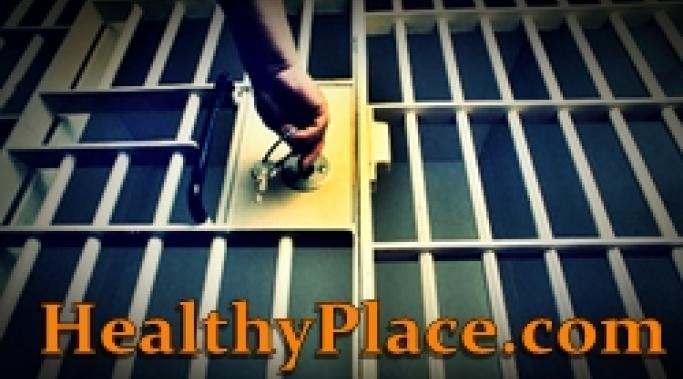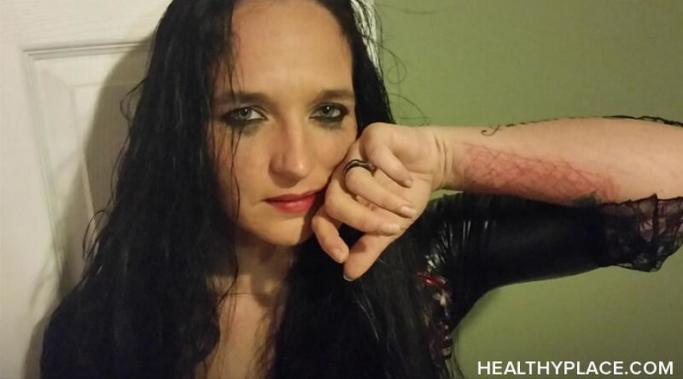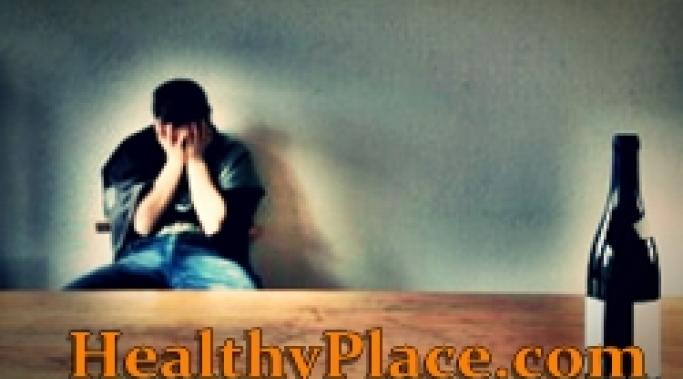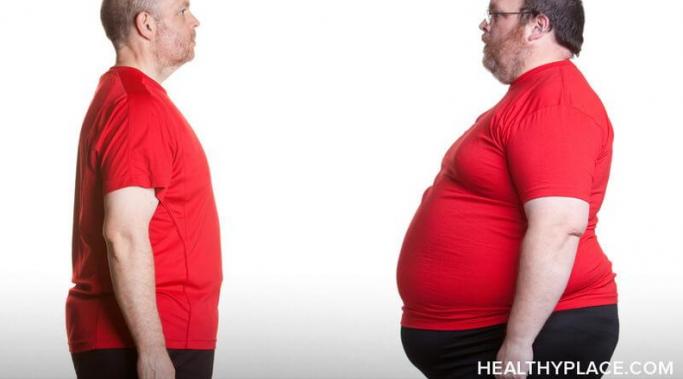Sometimes your mental illness symptoms may worsen, but increasing the dosage of your psychiatric medication isn't always the answer. Another problem may be to blame. Watch this video.
Borderline Treatment
Recently I spent the night in the psychiatric emergency room. While I was there, the police brought a suicidal drunk woman in. Short version: she created a huge disruption, refused treatment, tried to leave and was eventually arrested for public intoxication.
Mental illness, especially when combined with a substance abuse disorder, is an easy way to wind up in jail.
Recently I became very depressed for no apparent reason. My therapist and I decided I needed to be evaluated, and that's when the nightmare started.
I live in a cluster apartment, so staff called hospital security to take me to the Crisis Intervention Unit (CIU). Hospital security said no officers were available, so staff called the Indianapolis Metropolitan Police Department. The police called for a medic, but both the medic and the police refused to transport me, saying that transporting me was hospital security's job. They made me sign a form refusing transportation, and said that all the psychiatric beds in Indy were taken.
I was taken to the emergency room, evaluated, diagnosed with suicidal ideation, and sent home because there were no beds available.
m borderline personality disorder.
There's talk of privatizing the state hospital system. That strikes me as a bad idea. We already have enough mental health services that run with a skeleton staff, minimal oversight, and an emphasis on the bottom line.
Dr. Marsha Linehan, best known for creating dialectical behavioral therapy (DBT), admitted in a New York Times article that she struggles with mental illness, once being called "one of the most disturbed patients in the hospital." She would diagnose her troubled teenage self as having borderline personality disorder, or BPD. So why does this matter?
One possible symptom of borderline personality disorder (BPD) is substance abuse. When a person has a substance abuse disorder and a psychiatric disorder, they have a dual diagnosis. While help exists for people with mental illness and for people with substance abuse problems, getting help for a dual diagnosis is a lonely, uphill battle. Simply put, neither psychiatric facilities nor rehabilitation facilities have the desire nore ability to treat us.
Yesterday, I sought medical treatment after suffering some severe dizziness. After some tests, the doctor told me that the dizzy spells and difficulty walking were a result of a medication-related drop in blood pressure. The problem--the psychiatric medication responsible allows me to sleep without nightmares. It was my decision--psych symptoms or physical problem.
"The Fat and Happy Paradox?" I asked.
"Exactly," he replied.
I've heard too many stories of suicides of people told by their church that their problem was "sin" or the classic "If you just had enough faith..." . These aren't isolated incidents; they're a disturbing pattern. No one should be forced to gamble for their lives or perceived salvation. Religion and spirituality can heal. They can also hurt.
Rough week? Symptoms flaring up? Consider building a comfort zone as a way to self-soothe and de-stress. Watch this BPD video.







